- Introduction
- Step 1: Promote Global Education
- Step 2: Strengthen International Institutions
- Step 3: Foster Economic Equality
- Step 4: Advocate for Human Rights
- Step 5: Support Conflict Resolution and Mediation
- Step 6: Promote Environmental Sustainability
- Step 7: Encourage Political Stability and Good Governance
- Step 8: Enhance Global Health Initiatives
- Step 9: Advocate for Disarmament and Non-Proliferation
- Step 10: Support Refugees and Displaced Persons
- Step 11: Promote Gender Equality
- Step 12: Foster Cultural and Religious Tolerance
- Step 13: Strengthen Global Communication Networks
- Step 14: Invest in Youth and Future Generations
- Step 15: Promote Fair and Just Legal Systems
- Step 16: Encourage Global Solidarity and Cooperation
- Step 17: Foster Economic Interdependence
- Step 18: Strengthen Cybersecurity and Digital Peace
- Step 19: Support Arts and Cultural Diplomacy
- Step 20: Encourage Personal Responsibility and Action
- Conclusion
Introduction
Imagine a world where everyone lives in harmony, where conflicts are resolved peacefully, and every individual has the opportunity to thrive. This vision, while ambitious, is not unattainable. It’s a world where understanding and cooperation replace animosity and division. This is the essence of global harmony – a state where nations, communities, and individuals coexist peacefully, respecting each other’s rights and cultures.
Definition of Global Harmony
Global harmony isn’t just the absence of war; it’s a dynamic state of coexistence characterized by mutual respect, justice, and sustainable development. It involves creating a world where differences are celebrated rather than feared, and where every person can live a life of dignity and opportunity. Global harmony means ensuring that everyone, regardless of their background, has access to the resources they need to lead a fulfilling life, free from violence and discrimination.
Importance of Peace in the Modern World
In our interconnected world, peace is more crucial than ever. Conflicts in one part of the globe can quickly ripple out to affect the entire planet, whether through economic instability, refugee crises, or environmental degradation. Achieving global harmony is not just a moral imperative; it’s essential for our survival. Peace fosters economic growth, promotes social well-being, and ensures a healthier planet. It allows us to address global challenges like climate change, pandemics, and poverty more effectively, united in our efforts rather than divided by conflict.
Overview of the 20 Steps to Achieving Global Harmony
Achieving global harmony may seem like a monumental task, but it starts with small, actionable steps. In this journey, we will explore 20 practical steps that can bring us closer to a peaceful world. These steps range from promoting global education and economic equality to supporting human rights and environmental sustainability. Each step is a building block towards a more harmonious world, requiring the collective effort of individuals, communities, and nations.
- Promote Global Education: Education is the foundation of understanding and empathy. By ensuring universal access to quality education, we can build a generation that values peace and cooperation.
- Strengthen International Institutions: Robust international bodies can mediate conflicts and foster cooperation. Reforming these institutions to be more inclusive and effective is key.
- Foster Economic Equality: Reducing global poverty and inequality creates a more stable and peaceful world. Fair trade practices and sustainable development are crucial.
- Advocate for Human Rights: Protecting human rights ensures that all individuals can live with dignity and freedom, reducing sources of conflict.
- Support Conflict Resolution and Mediation: Diplomatic solutions and peacekeeping missions are essential for resolving disputes without violence.
- Promote Environmental Sustainability: A healthy planet is a peaceful planet. Addressing climate change and managing resources sustainably are vital for long-term peace.
- Encourage Political Stability and Good Governance: Promoting democracy, rule of law, and anti-corruption measures fosters a stable society.
- Enhance Global Health Initiatives: Access to healthcare and combating pandemics ensure that everyone can lead a healthy life, contributing to peace.
- Advocate for Disarmament and Non-Proliferation: Reducing weapons and promoting disarmament treaties lower the risk of conflict.
- Support Refugees and Displaced Persons: Providing aid and long-term solutions for integration ensures that those displaced by conflict can rebuild their lives.
- Promote Gender Equality: Empowering women and addressing gender-based violence create a more just and peaceful society.
- Foster Cultural and Religious Tolerance: Celebrating diversity and combating hate speech build a more inclusive world.
- Strengthen Global Communication Networks: Responsible media and combating misinformation are crucial for promoting peace.
- Invest in Youth and Future Generations: Empowering young people ensures that the next generation is prepared to continue the work of peacebuilding.
- Promote Fair and Just Legal Systems: Access to justice and legal reforms protect human rights and reduce conflict.
- Encourage Global Solidarity and Cooperation: Building alliances and involving communities in peace efforts create a unified front for harmony.
- Foster Economic Interdependence: Global trade and partnerships reduce economic disparities and foster cooperation.
- Strengthen Cybersecurity and Digital Peace: Addressing cyber threats and promoting digital literacy protect against new forms of conflict.
- Support Arts and Cultural Diplomacy: Arts and cultural exchanges foster understanding and cooperation.
- Encourage Personal Responsibility and Action: Individual actions, community involvement, and personal stories of impact are the foundation of global harmony.
As we delve into each of these steps, remember that peace is a journey we embark on together, one step at a time. Every action, no matter how small, contributes to a larger movement towards a world where harmony and peace prevail. Let’s walk this path together, for a brighter, more peaceful future.
Step 1: Promote Global Education

Education is the cornerstone of peace and understanding. It equips individuals with the knowledge and skills they need to navigate the complexities of our world and fosters the values of tolerance and empathy. By promoting global education, we lay the foundation for a more harmonious world.
Universal Access to Quality Education
Imagine a world where every child, regardless of their background or location, has access to quality education. This vision is not just about building more schools or hiring more teachers; it’s about ensuring that education is inclusive, equitable, and tailored to the needs of all learners. Universal access to education means breaking down the barriers that prevent children from attending school, such as poverty, discrimination, and conflict. It means providing the resources and support that students need to succeed, from textbooks and technology to trained educators and safe learning environments.
Quality education empowers individuals to reach their full potential. It opens doors to better job opportunities, improves health outcomes, and fosters informed and engaged citizens. When people are educated, they are better equipped to contribute to their communities and make positive changes in the world.
Importance of Cultural Exchange Programs
Education extends beyond the classroom. Cultural exchange programs play a crucial role in promoting global understanding and peace. These programs allow students to experience different cultures firsthand, breaking down stereotypes and building bridges between communities. Whether it’s a student exchange, study abroad, or international volunteer program, these experiences foster empathy and respect for diverse perspectives.
Cultural exchanges help young people develop a global mindset. They learn to appreciate the richness of different cultures and understand the common humanity that connects us all. By living and learning alongside people from different backgrounds, students gain a deeper understanding of global issues and the skills needed to navigate an increasingly interconnected world.
Emphasis on Teaching Tolerance and Understanding
At the heart of global education is the teaching of tolerance and understanding. Schools play a pivotal role in shaping the values and attitudes of the next generation. By integrating lessons on human rights, social justice, and global citizenship into the curriculum, educators can instill a sense of responsibility and compassion in their students.
Teaching tolerance means encouraging students to see beyond their differences and recognize the value of diversity. It involves fostering an inclusive environment where all students feel respected and valued. This can be achieved through activities that promote empathy, such as collaborative projects, discussions on current events, and service learning opportunities.
Understanding goes hand in hand with tolerance. It’s about teaching students to critically analyze information, understand different perspectives, and engage in respectful dialogue. In a world where misinformation and divisive rhetoric are prevalent, these skills are more important than ever. By nurturing a generation of critical thinkers and compassionate leaders, we create the conditions for a more peaceful and harmonious world.
As we embark on this journey towards global harmony, remember that education is the starting point. It is through education that we can build a future where peace and understanding are the norm, not the exception. By promoting universal access to quality education, supporting cultural exchange programs, and emphasizing the teaching of tolerance and understanding, we take the first step towards a world where everyone can thrive in harmony.
Step 2: Strengthen International Institutions

International institutions play a crucial role in maintaining global peace and stability. They provide platforms for dialogue, cooperation, and coordinated action on issues that transcend national borders. Strengthening these institutions is essential to achieving global harmony.
Role of the United Nations and Other Global Bodies
The United Nations (UN) and other global bodies like the World Bank, the International Monetary Fund (IMF), and the World Health Organization (WHO) are instrumental in promoting peace and development. The UN, established in 1945, has been at the forefront of efforts to prevent conflict, provide humanitarian aid, protect human rights, and promote sustainable development.
The UN’s various agencies and programs work tirelessly to address global challenges. For instance, the UN Security Council plays a vital role in maintaining international peace and security by addressing conflicts and promoting diplomatic solutions. The UN Development Programme (UNDP) focuses on eradicating poverty and reducing inequalities, while the WHO works to improve global health and combat pandemics.
These institutions provide a framework for countries to come together and tackle common challenges. They facilitate international cooperation on issues such as climate change, economic development, and human rights, making them indispensable to the pursuit of global harmony.
Enhancing International Cooperation
International cooperation is the bedrock of global harmony. When countries work together, they can achieve far more than they could alone. Enhancing cooperation involves fostering partnerships between nations, international organizations, and non-governmental organizations (NGOs).
One way to enhance cooperation is through multilateral agreements and treaties that address global issues. Examples include the Paris Agreement on climate change, which brings countries together to combat global warming, and the Sustainable Development Goals (SDGs), which provide a blueprint for a better and more sustainable future.
Cooperation also means sharing knowledge and resources. Countries can learn from each other’s experiences and best practices, whether it’s in healthcare, education, or economic development. By pooling resources and expertise, nations can address global challenges more effectively.
Reforming Institutions for Greater Efficiency and Inclusivity
For international institutions to remain effective and relevant, they must continually evolve. Reforming these institutions is essential to ensure they can meet the needs of a changing world. This involves improving their efficiency, transparency, and inclusivity.
Efficiency can be enhanced by streamlining processes and reducing bureaucracy. This allows institutions to respond more swiftly and effectively to crises. Transparency is crucial for building trust and accountability. Institutions must be open about their operations and decision-making processes, ensuring that stakeholders can hold them accountable.
Inclusivity is perhaps the most critical aspect of reform. Global institutions must represent the diverse voices and perspectives of all member states, especially those from the Global South. This ensures that decisions reflect the interests and needs of all countries, not just the most powerful ones.
For example, the UN Security Council’s permanent membership has been criticized for its lack of representation from Africa, Latin America, and other regions. Reforming the Security Council to include more diverse voices would enhance its legitimacy and effectiveness.
Strengthening international institutions is a vital step towards achieving global harmony. By supporting the role of the UN and other global bodies, enhancing international cooperation, and reforming institutions for greater efficiency and inclusivity, we can create a more coordinated and effective approach to global peace and development. As we work together, we move closer to a world where harmony and cooperation prevail, ensuring a brighter future for all.
Step 3: Foster Economic Equality

Economic equality is fundamental to achieving global harmony. When resources and opportunities are distributed more equitably, societies become more stable, resilient, and peaceful. Addressing global poverty and inequality, promoting fair trade practices, and pursuing sustainable development goals are crucial steps in fostering economic equality.
Addressing Global Poverty and Inequality
Global poverty and inequality are persistent challenges that fuel conflict and instability. Millions of people around the world still live in extreme poverty, lacking access to basic necessities such as food, clean water, healthcare, and education. To foster economic equality, we must address these disparities head-on.
Efforts to reduce poverty should focus on providing access to quality education and healthcare, creating job opportunities, and ensuring social protection for the most vulnerable. Initiatives like microfinance and social entrepreneurship can empower individuals, especially women and marginalized communities, to lift themselves out of poverty.
In addition, addressing inequality within and between countries is essential. This involves implementing progressive taxation, increasing social spending, and creating policies that promote inclusive growth. By ensuring that the benefits of economic growth are shared more broadly, we can create more equitable societies where everyone has the opportunity to thrive.
Fair Trade Practices
Fair trade practices are a powerful tool for promoting economic equality. Fair trade ensures that producers in developing countries receive fair prices for their goods, work in safe conditions, and have access to fair terms of trade. This helps to lift communities out of poverty and create more sustainable livelihoods.
Consumers play a vital role in supporting fair trade by choosing products that are ethically sourced and certified by organizations like Fair Trade International. By purchasing fair trade products, we can support producers who adhere to higher social, environmental, and economic standards.
Moreover, businesses and governments can promote fair trade by adopting ethical sourcing policies, supporting fair trade certification, and ensuring that trade agreements include provisions that protect workers’ rights and the environment. By creating a fairer global trading system, we can reduce inequality and promote economic justice.
Sustainable Development Goals
The Sustainable Development Goals (SDGs) provide a comprehensive framework for fostering economic equality and achieving global harmony. Adopted by all United Nations member states in 2015, the SDGs consist of 17 goals that address a wide range of social, economic, and environmental challenges.
Key SDGs related to economic equality include:
- No Poverty: End poverty in all its forms everywhere.
- Zero Hunger: End hunger, achieve food security and improved nutrition, and promote sustainable agriculture.
- Quality Education: Ensure inclusive and equitable quality education and promote lifelong learning opportunities for all.
- Gender Equality: Achieve gender equality and empower all women and girls.
- Decent Work and Economic Growth: Promote sustained, inclusive, and sustainable economic growth, full and productive employment, and decent work for all.
- Reduced Inequalities: Reduce inequality within and among countries.
Achieving these goals requires coordinated efforts from governments, businesses, civil society, and individuals. It involves implementing policies that promote inclusive growth, investing in education and healthcare, and ensuring that economic development is environmentally sustainable.
Fostering economic equality is essential for creating a peaceful and harmonious world. By addressing global poverty and inequality, promoting fair trade practices, and pursuing the Sustainable Development Goals, we can build a more just and equitable society. Each step we take towards economic equality brings us closer to a world where everyone has the opportunity to live a dignified and fulfilling life, free from the constraints of poverty and inequality. Let us work together to create a future where economic justice and global harmony go hand in hand.
Step 4: Advocate for Human Rights
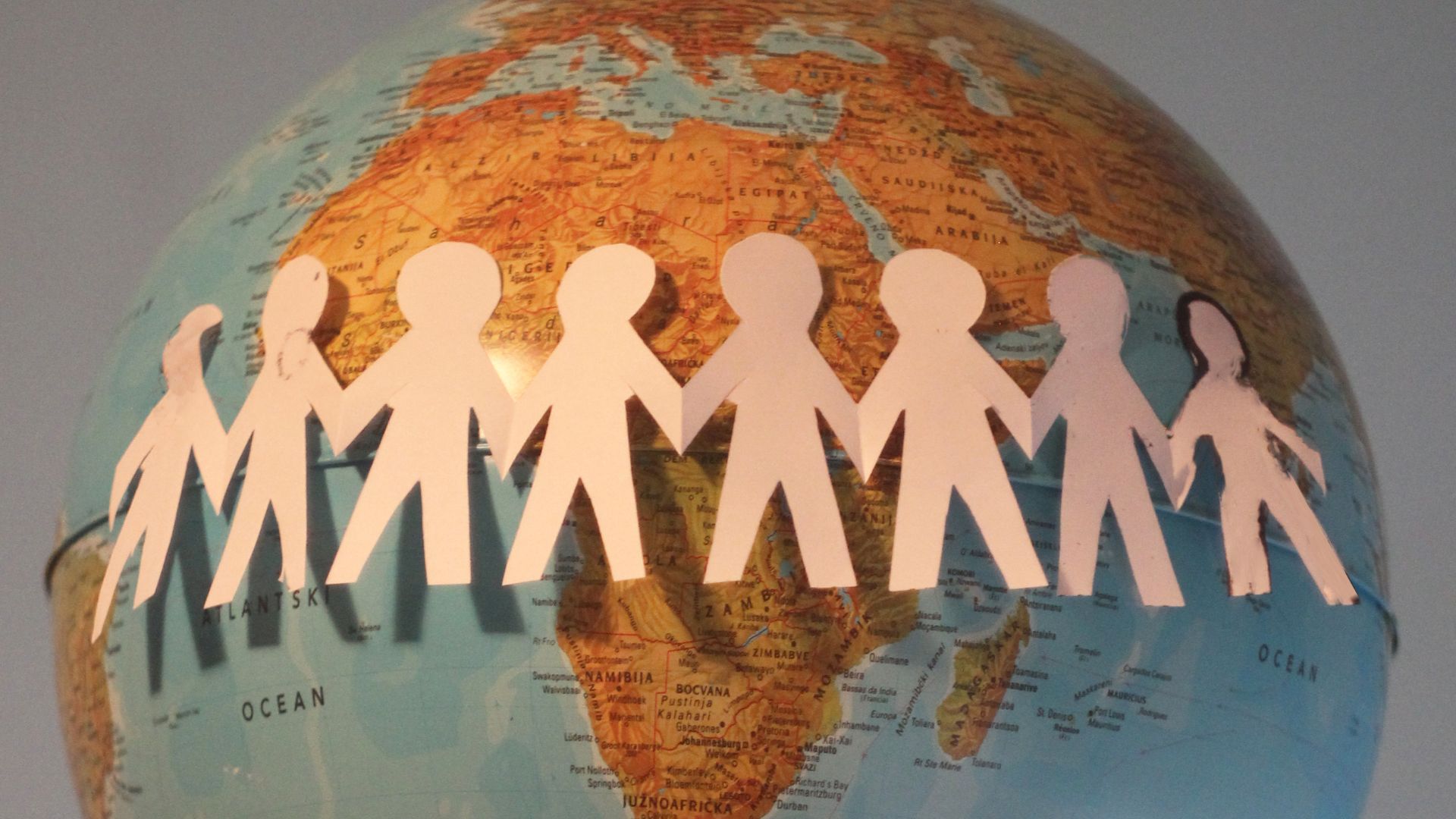
Human rights are the foundation of peace and justice in the world. When everyone’s rights are respected and protected, societies become more stable and harmonious. Advocating for human rights involves upholding the principles of the Universal Declaration of Human Rights, fighting discrimination and injustice, and supporting marginalized communities.
Universal Declaration of Human Rights
The Universal Declaration of Human Rights (UDHR), adopted by the United Nations General Assembly in 1948, is a milestone document that sets out fundamental human rights to be universally protected. It asserts that all human beings are born free and equal in dignity and rights, and it covers a broad spectrum of rights, including civil, political, economic, social, and cultural rights.
The UDHR serves as a common standard of achievement for all peoples and nations. It emphasizes that human rights are inalienable and apply to every person, regardless of race, color, sex, language, religion, political or other opinion, national or social origin, property, birth, or other status. By advocating for the principles enshrined in the UDHR, we lay the groundwork for a more just and peaceful world.
Fighting Discrimination and Injustice
Discrimination and injustice are significant barriers to peace and equality. They perpetuate inequality, breed resentment, and can lead to conflict and violence. To advocate for human rights, we must actively fight against all forms of discrimination and injustice.
This involves challenging prejudices and stereotypes, promoting equal opportunities, and ensuring that laws and policies do not discriminate against any group. It also means holding perpetrators of human rights abuses accountable, whether they are individuals, organizations, or governments.
Education plays a critical role in this fight. By raising awareness about human rights and the harmful effects of discrimination, we can foster a culture of respect and inclusion. Schools, media, and community organizations can all contribute to this effort by promoting diversity and teaching the importance of human rights.
Supporting Marginalized Communities
Marginalized communities often face the greatest challenges in having their rights recognized and protected. These communities may include ethnic and religious minorities, LGBTQ+ individuals, refugees and migrants, people with disabilities, and the economically disadvantaged.
Supporting marginalized communities involves advocating for their rights and ensuring they have access to the same opportunities and resources as others. This can be achieved through targeted policies and programs that address their specific needs and challenges.
For example, legal reforms can help protect the rights of marginalized groups and ensure they have access to justice. Social programs can provide education, healthcare, and economic opportunities to those who have been historically disadvantaged. Additionally, creating platforms for marginalized voices to be heard and involved in decision-making processes is crucial for their empowerment and inclusion.
Advocating for human rights is a cornerstone of achieving global harmony. By upholding the principles of the Universal Declaration of Human Rights, fighting discrimination and injustice, and supporting marginalized communities, we can create a world where everyone’s rights are respected and protected. Each of us has a role to play in this effort. By standing up for human rights in our daily lives, we contribute to a more just, inclusive, and peaceful world. Let us commit to advocating for human rights, ensuring that dignity and equality are not just ideals, but realities for all.
Step 5: Support Conflict Resolution and Mediation

Conflict resolution and mediation are vital tools for achieving global harmony. They provide alternatives to violence and help build lasting peace by addressing the root causes of conflicts. Supporting diplomatic solutions, peacekeeping missions, and learning from successful case studies can pave the way for a more peaceful world.
Importance of Diplomatic Solutions
Diplomatic solutions are the cornerstone of peaceful conflict resolution. Diplomacy involves dialogue, negotiation, and compromise to resolve disputes without resorting to violence. It allows conflicting parties to understand each other’s perspectives, find common ground, and agree on mutually acceptable solutions.
Diplomatic efforts can prevent conflicts from escalating and reduce the human and economic costs associated with wars. They foster cooperation and build trust between nations, paving the way for long-term peace and stability. By investing in diplomacy, we can address the underlying issues that lead to conflict, such as resource disputes, political tensions, and social inequalities.
Promoting diplomatic solutions requires robust international support. Governments, international organizations, and civil society must work together to facilitate dialogue and negotiation. Training diplomats and peace negotiators in conflict resolution skills, cultural understanding, and mediation techniques is also essential for effective diplomacy.
Role of Peacekeeping Missions
Peacekeeping missions play a crucial role in maintaining peace and security in conflict-affected areas. These missions, often led by the United Nations, involve the deployment of military, police, and civilian personnel to help stabilize regions, protect civilians, and support the implementation of peace agreements.
Peacekeepers serve as neutral forces that monitor ceasefires, disarm combatants, and create safe environments for humanitarian aid delivery. They work to prevent the recurrence of violence and support efforts to rebuild societies torn apart by conflict.
Successful peacekeeping missions rely on international cooperation and adequate resources. Countries must contribute troops, funding, and expertise to support these missions. Additionally, peacekeepers must be trained in cultural sensitivity, human rights, and conflict resolution to effectively carry out their mandates.
Case Studies of Successful Conflict Resolution
Learning from successful conflict resolution cases can provide valuable insights and strategies for future efforts. Here are a few examples:
- South Africa’s Peaceful Transition: South Africa’s transition from apartheid to democracy is a powerful example of successful conflict resolution. Through negotiations and mediation, key leaders like Nelson Mandela and F.W. de Klerk worked to dismantle apartheid peacefully. The Truth and Reconciliation Commission played a significant role in healing the nation’s wounds by addressing past atrocities and promoting forgiveness.
- Northern Ireland Peace Process: The Good Friday Agreement of 1998 marked the end of decades of violent conflict in Northern Ireland. This peace process involved intense negotiations between political parties, with significant mediation efforts by international figures like U.S. Senator George Mitchell. The agreement established a power-sharing government and laid the foundation for lasting peace.
- Mozambique Peace Agreement: After a brutal civil war, Mozambique achieved peace through negotiations between the government and the opposition group RENAMO. The 1992 Rome General Peace Accords, facilitated by international mediators, ended the conflict and led to democratic elections. Mozambique’s experience highlights the importance of inclusive dialogue and international support in resolving conflicts.
Supporting conflict resolution and mediation is essential for building a peaceful world. By prioritizing diplomatic solutions, backing peacekeeping missions, and learning from successful case studies, we can create effective strategies for resolving disputes and preventing violence. Each effort we make towards peaceful conflict resolution brings us closer to a world where harmony prevails, ensuring a brighter future for all. Let us commit to supporting these vital processes and working together to build lasting peace.
Step 6: Promote Environmental Sustainability

Environmental sustainability is crucial for global harmony. A healthy planet is fundamental to the well-being of all living beings, and environmental degradation often exacerbates conflicts and instability. Promoting environmental sustainability involves understanding the connection between peace and environmental health, supporting global efforts to combat climate change, and practicing sustainable resource management.
Connection Between Peace and Environmental Health
The connection between environmental health and peace is profound. Environmental degradation, such as deforestation, water scarcity, and pollution, can lead to resource conflicts, displacement, and social unrest. Conversely, a healthy environment supports livelihoods, reduces competition over scarce resources, and fosters stability.
For example, access to clean water is essential for agriculture, industry, and daily life. When water resources are depleted or polluted, communities may compete for what remains, leading to tensions and conflicts. Ensuring sustainable water management and protecting natural water sources can prevent such conflicts and promote peace.
Similarly, environmental conservation efforts, such as preserving forests and biodiversity, can create jobs and support local economies, reducing poverty and inequality. By recognizing and addressing the environmental roots of conflict, we can build more resilient and peaceful societies.
Global Efforts to Combat Climate Change
Climate change is one of the most significant threats to global peace and stability. Rising temperatures, sea-level rise, and extreme weather events disrupt ecosystems, economies, and communities. These changes can exacerbate existing conflicts and create new ones, as people are forced to migrate and compete for resources.
Global efforts to combat climate change are essential for promoting environmental sustainability and peace. The Paris Agreement, adopted in 2015, is a landmark international treaty that brings countries together to limit global warming to well below 2 degrees Celsius above pre-industrial levels. By reducing greenhouse gas emissions, investing in renewable energy, and enhancing climate resilience, countries can mitigate the impacts of climate change.
Additionally, international cooperation on climate action is vital. Developed countries must support developing nations through financial assistance, technology transfer, and capacity-building. This collaborative approach ensures that all countries can contribute to and benefit from global efforts to combat climate change.
Sustainable Resource Management
Sustainable resource management is key to environmental sustainability and peace. It involves using natural resources in a way that meets current needs without compromising the ability of future generations to meet their own needs. This approach balances economic development, environmental protection, and social well-being.
One critical aspect of sustainable resource management is the conservation of natural ecosystems, such as forests, wetlands, and oceans. These ecosystems provide essential services, such as carbon sequestration, water filtration, and habitat for biodiversity. Protecting and restoring these ecosystems can enhance resilience to climate change and support sustainable livelihoods.
Sustainable agriculture and fisheries practices are also vital. Overfishing, soil degradation, and water-intensive farming can deplete resources and harm the environment. By adopting sustainable practices, such as crop rotation, agroforestry, and responsible fishing, we can ensure that these resources remain available for future generations.
Furthermore, promoting a circular economy—where products and materials are reused, recycled, and regenerated—reduces waste and conserves resources. This approach not only protects the environment but also creates economic opportunities and reduces dependence on finite resources.
Promoting environmental sustainability is essential for achieving global harmony. By understanding the connection between peace and environmental health, supporting global efforts to combat climate change, and practicing sustainable resource management, we can create a healthier, more stable, and peaceful world. Each step we take towards environmental sustainability brings us closer to a future where harmony between people and the planet is the norm. Let us commit to these principles and work together to protect our shared home for generations to come.
Step 7: Encourage Political Stability and Good Governance

Political stability and good governance are cornerstones of a peaceful and prosperous society. When governments are accountable, transparent, and inclusive, they can better address the needs of their citizens and prevent conflicts. Encouraging political stability and good governance involves promoting democracy and the rule of law, implementing anti-corruption measures, and strengthening civic participation.
Promoting Democracy and Rule of Law
Democracy and the rule of law are fundamental to political stability. In a democratic system, power is derived from the people, and leaders are held accountable through regular, free, and fair elections. Democracy ensures that citizens have a voice in the decisions that affect their lives, fostering a sense of ownership and responsibility.
The rule of law guarantees that everyone is subject to the same legal standards and that justice is administered impartially. It prevents the arbitrary use of power and protects individual rights. When laws are clear, predictable, and enforced consistently, citizens trust their institutions, and conflicts are less likely to arise.
Promoting democracy and the rule of law involves supporting democratic institutions, such as independent judiciaries, free press, and vibrant civil societies. It also means providing education on democratic principles and human rights to empower citizens to participate effectively in their governance.
Anti-Corruption Measures
Corruption undermines political stability and good governance by eroding public trust and diverting resources from essential services. It creates inequality, fuels grievances, and can lead to social unrest. Implementing anti-corruption measures is crucial for building transparent, accountable, and effective institutions.
Anti-corruption strategies include:
- Strengthening Legal Frameworks: Enacting robust anti-corruption laws and ensuring they are enforced impartially.
- Promoting Transparency: Ensuring that government activities, finances, and decision-making processes are open to public scrutiny.
- Encouraging Whistleblowing: Protecting individuals who report corrupt practices and ensuring their safety.
- Enhancing Accountability: Establishing independent oversight bodies, such as anti-corruption commissions, to investigate and prosecute corruption cases.
- Fostering a Culture of Integrity: Promoting ethical behavior and integrity in public service through education and training.
By combating corruption, governments can build trust with their citizens, ensure that resources are used effectively, and create a more stable and just society.
Strengthening Civic Participation
Civic participation is essential for good governance and political stability. When citizens are actively involved in the decision-making processes, they are more likely to support and adhere to the outcomes. Civic participation fosters a sense of community, shared responsibility, and accountability.
Strengthening civic participation involves creating opportunities for citizens to engage in governance at all levels. This can be achieved through:
- Inclusive Policy-Making: Involving diverse groups in the development and implementation of policies to ensure that all voices are heard.
- Public Consultations: Holding regular consultations and town hall meetings to gather input from citizens on important issues.
- Civic Education: Providing education on civic rights and responsibilities to empower individuals to participate effectively.
- Support for Civil Society: Encouraging the growth of NGOs and community organizations that advocate for citizens’ interests and hold governments accountable.
- Digital Platforms: Utilizing technology to facilitate citizen engagement, such as online petitions, forums, and e-governance tools.
When citizens feel that their voices matter and that they can influence government decisions, they are more likely to contribute positively to society and work towards common goals.
Encouraging political stability and good governance is crucial for achieving global harmony. By promoting democracy and the rule of law, implementing anti-corruption measures, and strengthening civic participation, we can build more transparent, accountable, and inclusive societies. Each step towards better governance brings us closer to a world where peace and justice prevail. Let us commit to these principles and work together to create a future where political stability and good governance are the norm.
Step 8: Enhance Global Health Initiatives

Health is a fundamental human right and a cornerstone of global harmony. Ensuring that everyone has access to healthcare, combating pandemics and diseases, and raising awareness about mental health are essential steps in building a healthier and more peaceful world. Enhancing global health initiatives involves addressing these critical areas to create a more equitable and resilient global health system.
Universal Healthcare Access
Universal healthcare access means that all individuals, regardless of their socio-economic status, have access to the healthcare services they need without suffering financial hardship. This includes preventative care, treatment for illnesses and injuries, and access to essential medicines and vaccines.
Achieving universal healthcare requires significant investment in healthcare infrastructure, workforce, and financing mechanisms. Governments must prioritize healthcare in their budgets and implement policies that ensure equitable access. This might involve expanding public healthcare systems, subsidizing healthcare costs for the poor, and promoting insurance schemes that cover all citizens.
International cooperation is also crucial. Wealthier nations and international organizations can support lower-income countries through funding, technical assistance, and sharing best practices. By working together, we can build healthcare systems that provide quality care to everyone, ensuring that no one is left behind.
Combating Pandemics and Diseases
The COVID-19 pandemic has highlighted the importance of global cooperation in combating pandemics and infectious diseases. Pandemics can spread rapidly across borders, affecting every aspect of society and the economy. To prevent and manage such outbreaks, we need robust global health initiatives that prioritize early detection, rapid response, and effective containment measures.
Key strategies include:
- Strengthening Health Systems: Building resilient health systems that can quickly respond to health emergencies.
- Improving Surveillance: Enhancing global disease surveillance networks to detect outbreaks early and track their spread.
- Promoting Research and Development: Investing in research to develop vaccines, treatments, and diagnostic tools for emerging diseases.
- Ensuring Equitable Distribution: Ensuring that vaccines, treatments, and other medical supplies are distributed equitably, particularly to vulnerable and underserved populations.
- International Collaboration: Facilitating cooperation and information-sharing between countries and international health organizations like the WHO.
By prioritizing these strategies, we can better prepare for future pandemics and protect global health.
Mental Health Awareness and Support
Mental health is a critical component of overall health, yet it is often neglected. Mental health disorders affect millions of people worldwide and can have profound impacts on individuals, families, and communities. Promoting mental health awareness and providing support are essential for building healthy and resilient societies.
Raising awareness about mental health involves educating the public about the importance of mental well-being, recognizing the signs of mental health issues, and reducing the stigma associated with mental illness. Schools, workplaces, and community organizations can play a significant role in this effort by incorporating mental health education into their programs.
Providing support for mental health means ensuring that individuals have access to mental health services, including counseling, therapy, and psychiatric care. This requires investment in mental health infrastructure, training more mental health professionals, and integrating mental health services into primary healthcare.
Additionally, promoting a supportive environment for mental health includes policies that address social determinants of mental health, such as poverty, discrimination, and social isolation. Creating inclusive and supportive communities can help individuals thrive and contribute to a more harmonious society.
Enhancing global health initiatives is vital for achieving global harmony. By ensuring universal healthcare access, combating pandemics and diseases, and raising awareness about mental health, we can build a healthier, more resilient world. Each step we take towards better health contributes to a future where everyone has the opportunity to live a healthy, fulfilling life. Let us commit to these initiatives and work together to create a world where health and peace go hand in hand.
Step 9: Advocate for Disarmament and Non-Proliferation

Disarmament and non-proliferation are critical to achieving global harmony and security. Reducing the number of weapons in the world, particularly weapons of mass destruction, helps to prevent conflicts and promotes peace. Advocating for nuclear disarmament, reducing the global arms trade, and promoting peace through disarmament treaties are essential steps toward a safer and more peaceful world.
Nuclear Disarmament Efforts
Nuclear weapons pose an existential threat to humanity. Their destructive power can cause catastrophic loss of life and environmental damage. Advocating for nuclear disarmament involves pushing for the elimination of nuclear weapons and ensuring that they are never used again.
Several international efforts have been made toward nuclear disarmament. The Treaty on the Non-Proliferation of Nuclear Weapons (NPT) is a cornerstone of these efforts, aiming to prevent the spread of nuclear weapons and promote disarmament. Encouraging nations to adhere to and strengthen the NPT is crucial for reducing the nuclear threat.
Another significant effort is the Treaty on the Prohibition of Nuclear Weapons (TPNW), which seeks to establish a comprehensive ban on nuclear weapons. Supporting the ratification and implementation of the TPNW can help move the world closer to a nuclear-free future.
Civil society organizations, activists, and governments must work together to raise awareness about the dangers of nuclear weapons and advocate for their abolition. Public pressure and international diplomacy can drive progress toward a world free of nuclear weapons.
Reducing the Global Arms Trade
The global arms trade fuels conflict, violence, and instability. The proliferation of conventional weapons, such as firearms and explosives, exacerbates conflicts and makes it easier for armed groups to perpetrate violence. Reducing the global arms trade is essential for promoting peace and security.
One approach to reducing the arms trade is through stricter regulations and oversight. The Arms Trade Treaty (ATT), which regulates the international trade of conventional weapons, aims to prevent weapons from falling into the hands of those who would use them to commit atrocities. Encouraging countries to ratify and comply with the ATT is a critical step in curbing the irresponsible transfer of arms.
Additionally, promoting transparency in arms transfers and holding arms manufacturers accountable for their exports can help reduce the flow of weapons to conflict zones. Supporting disarmament programs that collect and destroy surplus weapons can also mitigate the impact of the arms trade.
Promoting Peace Through Disarmament Treaties
Disarmament treaties play a vital role in promoting peace and reducing the risk of conflict. These treaties establish legal frameworks for reducing or eliminating certain types of weapons and creating mechanisms for verification and compliance.
In addition to the NPT and TPNW, other important disarmament treaties include the Chemical Weapons Convention (CWC) and the Biological Weapons Convention (BWC). These treaties prohibit the development, production, and use of chemical and biological weapons, contributing to global security.
Regional disarmament agreements, such as the Treaty of Tlatelolco (which established a nuclear-weapon-free zone in Latin America and the Caribbean) and the Treaty of Pelindaba (which established a nuclear-weapon-free zone in Africa), also play a crucial role in promoting disarmament and non-proliferation.
To promote peace through disarmament treaties, it is essential to:
- Strengthen International Cooperation: Encourage countries to participate in and comply with disarmament treaties and support international organizations that oversee their implementation.
- Enhance Verification and Enforcement: Develop robust verification mechanisms to ensure compliance and take enforcement actions against violators.
- Promote Dialogue and Diplomacy: Foster dialogue between nations to address security concerns and build trust, paving the way for further disarmament efforts.
Advocating for disarmament and non-proliferation is crucial for achieving global harmony and security. By supporting nuclear disarmament efforts, reducing the global arms trade, and promoting peace through disarmament treaties, we can create a safer world for future generations. Each step toward disarmament brings us closer to a future where conflicts are resolved peacefully, and the threat of catastrophic violence is diminished. Let us commit to these efforts and work together to build a world free of the dangers posed by weapons of mass destruction.
Step 10: Support Refugees and Displaced Persons

Supporting refugees and displaced persons is a moral imperative and a crucial step toward global harmony. The global refugee crisis has reached unprecedented levels, with millions of people forced to flee their homes due to conflict, persecution, and environmental disasters. Providing humanitarian aid and finding long-term solutions for integration and resettlement are essential for ensuring their safety, dignity, and well-being.
Global Refugee Crisis
The global refugee crisis affects millions of people worldwide. According to the United Nations High Commissioner for Refugees (UNHCR), there are over 80 million forcibly displaced people globally, including refugees, asylum seekers, and internally displaced persons (IDPs). These individuals face immense challenges, including violence, exploitation, and lack of access to basic necessities such as food, water, and healthcare.
The root causes of displacement are complex and multifaceted. They include armed conflict, political instability, human rights violations, and environmental factors such as natural disasters and climate change. Addressing these root causes requires coordinated international efforts to promote peace, protect human rights, and mitigate the impacts of climate change.
Providing Humanitarian Aid
Immediate humanitarian aid is crucial for addressing the urgent needs of refugees and displaced persons. Humanitarian organizations, governments, and international agencies must work together to provide essential services such as food, clean water, shelter, healthcare, and education.
- Emergency Relief: Providing immediate relief through emergency food supplies, clean water, temporary shelters, and medical care is critical to saving lives and alleviating suffering.
- Health Services: Ensuring access to healthcare, including mental health support, is vital for addressing the physical and psychological impacts of displacement.
- Protection and Security: Safeguarding refugees from violence, exploitation, and abuse, particularly women and children, is essential for their safety and well-being.
- Education: Providing educational opportunities for displaced children and youth helps to restore a sense of normalcy and hope for the future.
Humanitarian aid must be delivered in a manner that respects the dignity and rights of refugees and displaced persons. It should involve their participation in decision-making processes to ensure that their needs and preferences are met.
Long-Term Solutions for Integration and Resettlement
While humanitarian aid addresses immediate needs, long-term solutions are necessary for the sustainable integration and resettlement of refugees and displaced persons. These solutions involve providing opportunities for refugees to rebuild their lives and contribute to their host communities.
- Local Integration: Supporting the integration of refugees into their host communities by providing access to education, employment, healthcare, and social services. Promoting social cohesion and combating discrimination are crucial for successful integration.
- Voluntary Repatriation: Facilitating the voluntary return of refugees to their home countries when it is safe and feasible. This involves ensuring that conditions in the home country are conducive to a dignified and sustainable return.
- Resettlement: Offering resettlement opportunities in third countries for refugees who cannot return home or integrate locally. This includes providing legal pathways, such as asylum and refugee resettlement programs, and ensuring that refugees have access to support services in their new communities.
- Economic Empowerment: Promoting economic opportunities for refugees through skills training, entrepreneurship programs, and access to employment. This not only supports their self-reliance but also contributes to the economic development of host communities.
International cooperation and solidarity are essential for addressing the global refugee crisis. Countries must share the responsibility of hosting and supporting refugees, and international organizations must coordinate efforts to provide comprehensive and sustainable solutions.
Supporting refugees and displaced persons is a vital step toward global harmony. By addressing the global refugee crisis, providing humanitarian aid, and finding long-term solutions for integration and resettlement, we can ensure that those forced to flee their homes are treated with dignity and respect. Each effort we make toward supporting refugees brings us closer to a world where everyone can live in safety and peace. Let us commit to these actions and work together to build a future where no one is forced to live in fear and uncertainty.
Step 11: Promote Gender Equality
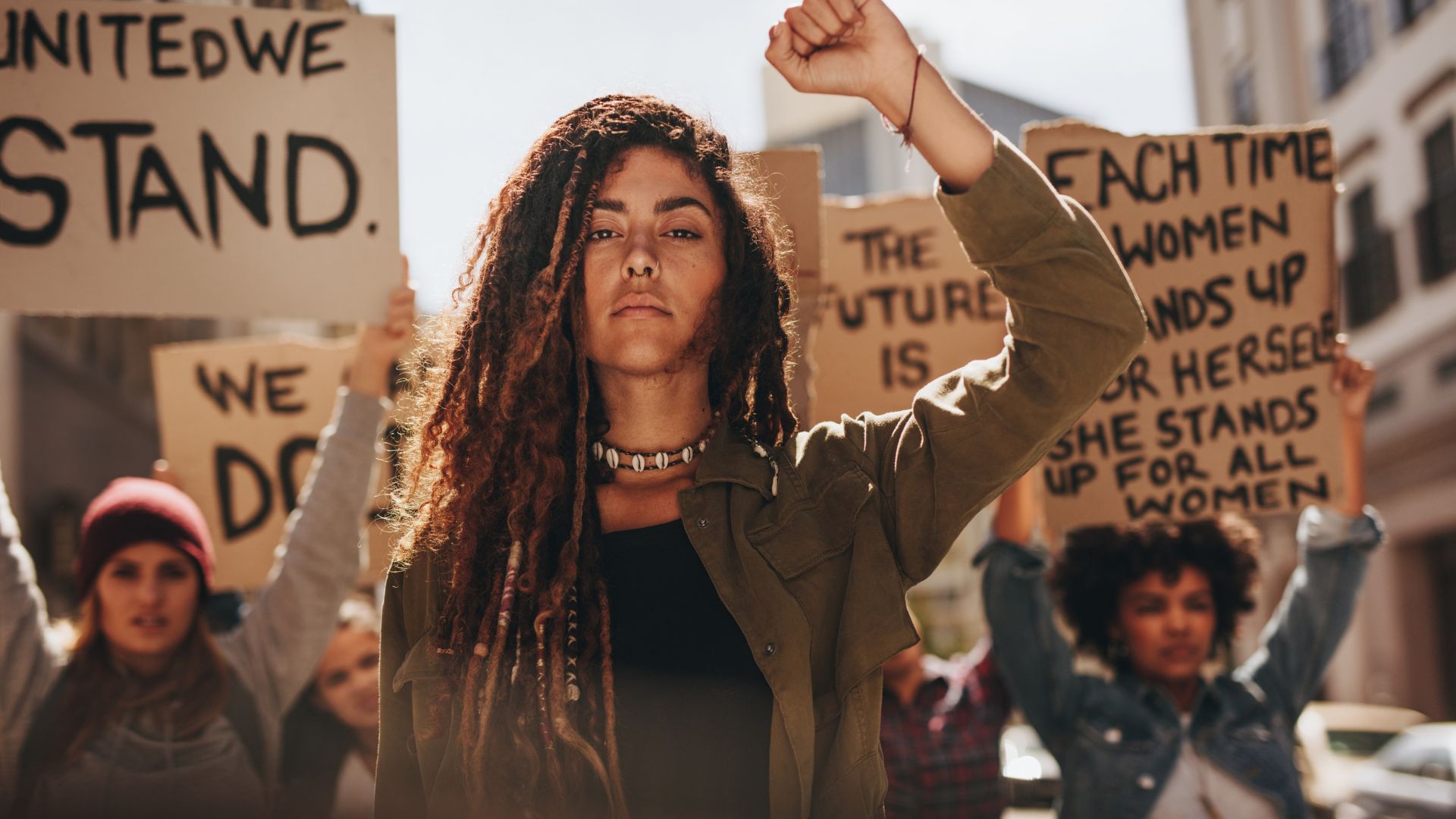
Gender equality is fundamental to achieving global harmony. Empowering women and girls, addressing gender-based violence, and ensuring equal opportunities in all sectors are essential steps in building a fair and just society. When gender equality is prioritized, everyone benefits from the resulting social, economic, and political advancements.
Empowering Women and Girls
Empowering women and girls means giving them the tools, resources, and opportunities they need to thrive. This includes access to quality education, healthcare, and economic opportunities, as well as the ability to participate fully in political and social life.
- Education: Ensuring that girls have access to education is one of the most effective ways to empower them. Educated women are more likely to participate in the workforce, make informed health decisions, and contribute to their communities. Efforts should be made to eliminate barriers to education, such as child marriage, early pregnancy, and gender-based discrimination in schools.
- Healthcare: Providing comprehensive healthcare services, including reproductive health and maternal care, is crucial for the well-being of women and girls. Access to family planning services and education on sexual and reproductive health empowers women to make choices about their bodies and their futures.
- Economic Opportunities: Promoting women’s economic empowerment involves ensuring equal access to employment, fair wages, and opportunities for entrepreneurship. This includes providing skills training, financial literacy programs, and access to credit and markets. Supporting women’s economic participation not only benefits individuals but also contributes to broader economic growth and stability.
- Political Participation: Encouraging women to participate in political processes and decision-making is essential for creating inclusive and representative governance. This can be achieved through policies that promote women’s leadership, quotas for women in political offices, and initiatives that support women’s political campaigns.
Addressing Gender-Based Violence
Gender-based violence (GBV) is a pervasive violation of human rights that affects millions of women and girls worldwide. It takes many forms, including domestic violence, sexual assault, trafficking, and harmful practices such as female genital mutilation (FGM) and child marriage. Addressing GBV requires a comprehensive and coordinated approach.
- Legal Frameworks: Strengthening legal protections against GBV is crucial. This includes enacting and enforcing laws that criminalize all forms of GBV, providing legal aid to survivors, and ensuring that perpetrators are held accountable.
- Support Services: Providing comprehensive support services for survivors of GBV, such as shelters, counseling, healthcare, and legal assistance, is essential for their recovery and empowerment. These services should be accessible, confidential, and sensitive to the needs of survivors.
- Prevention and Education: Preventing GBV involves changing societal attitudes and behaviors that perpetuate violence. Education and awareness campaigns that challenge gender stereotypes, promote respect and equality, and teach non-violent conflict resolution are key components of prevention efforts.
- Community Engagement: Engaging communities in efforts to combat GBV is vital. This includes working with men and boys as allies in promoting gender equality, supporting community-led initiatives, and involving religious and traditional leaders in advocacy efforts.
Equal Opportunities in All Sectors
Ensuring equal opportunities in all sectors is essential for achieving gender equality. This involves removing barriers to women’s participation and creating inclusive environments where everyone can succeed.
- Workplace Equality: Promoting gender equality in the workplace includes implementing policies that prevent discrimination, ensure equal pay for equal work, and support work-life balance. This also involves creating pathways for women to advance to leadership positions and addressing gender biases in hiring and promotion practices.
- STEM Fields: Encouraging women and girls to pursue careers in science, technology, engineering, and mathematics (STEM) is crucial for closing the gender gap in these high-demand fields. This can be achieved through targeted education programs, mentorship opportunities, and initiatives that challenge gender stereotypes in STEM.
- Sports and Media: Promoting gender equality in sports and media is important for challenging stereotypes and providing positive role models. This includes ensuring equal opportunities for women in sports, fair media representation, and addressing gender biases in coverage and portrayal.
- Political and Civic Engagement: Supporting women’s participation in political and civic life is essential for creating inclusive and representative institutions. This involves promoting women’s leadership, providing training and resources for women candidates, and ensuring that political processes are accessible and inclusive.
Promoting gender equality is a vital step toward global harmony. By empowering women and girls, addressing gender-based violence, and ensuring equal opportunities in all sectors, we can create a more just and equitable society. Each step we take toward gender equality brings us closer to a world where everyone, regardless of gender, can live with dignity, respect, and opportunity. Let us commit to these efforts and work together to build a future where gender equality is the norm, not the exception.
Step 12: Foster Cultural and Religious Tolerance
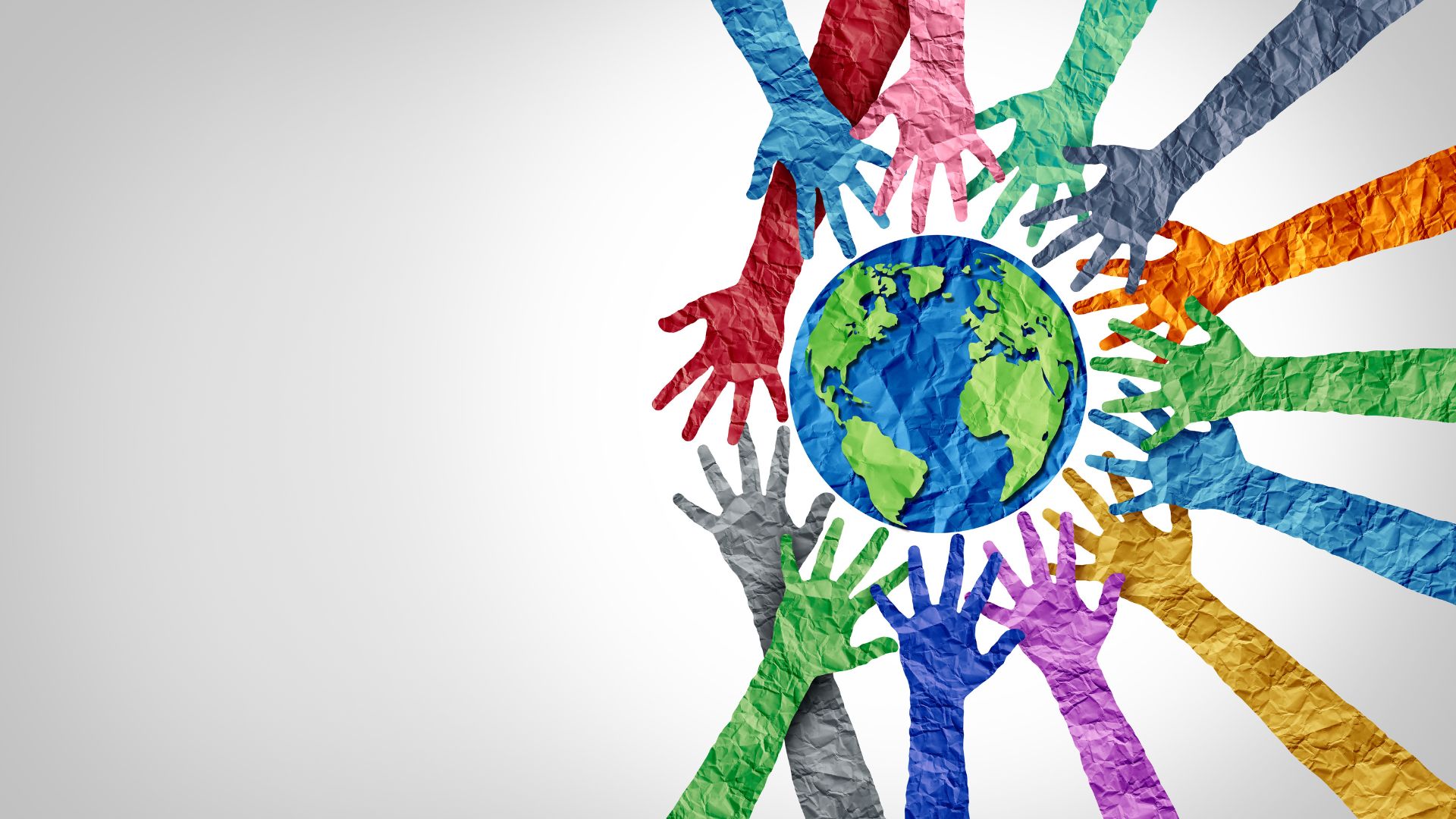
Cultural and religious tolerance is essential for global harmony. When we embrace diversity and promote understanding, we create a more inclusive and peaceful world. Fostering tolerance involves engaging in interfaith dialogue, celebrating cultural diversity, and combating hate speech and xenophobia.
Importance of Interfaith Dialogue
Interfaith dialogue is a powerful tool for promoting understanding and peace between different religious communities. By engaging in open and respectful conversations, individuals from various faith traditions can learn from one another, build trust, and find common ground.
- Building Bridges: Interfaith dialogue helps to break down barriers and dispel misconceptions about different religions. It encourages mutual respect and appreciation for the beliefs and practices of others.
- Conflict Resolution: In regions where religious tensions are high, interfaith dialogue can play a crucial role in conflict resolution. It provides a platform for addressing grievances, fostering reconciliation, and promoting coexistence.
- Shared Values: Despite differences, many religions share common values such as compassion, justice, and peace. Interfaith dialogue highlights these shared values and encourages collaboration on social and humanitarian issues.
- Educational Initiatives: Promoting interfaith education in schools and communities can help young people develop a deeper understanding and respect for different religions. This can be achieved through curriculum development, interfaith workshops, and community events.
Celebrating Cultural Diversity
Cultural diversity is a source of strength and enrichment for societies. Celebrating cultural diversity involves recognizing and valuing the unique contributions of different cultures and fostering an environment where everyone feels respected and included.
- Cultural Festivals: Organizing cultural festivals and events that showcase the traditions, music, dance, food, and art of various cultures can promote understanding and appreciation. These events provide opportunities for people to learn about and experience different cultures firsthand.
- Inclusive Policies: Governments and organizations should implement policies that promote cultural inclusion and protect the rights of minority groups. This includes anti-discrimination laws, support for cultural heritage preservation, and funding for cultural initiatives.
- Media Representation: Ensuring diverse and accurate representation in media is crucial for challenging stereotypes and promoting cultural understanding. Media outlets should strive to highlight positive stories from diverse communities and provide platforms for underrepresented voices.
- Educational Programs: Incorporating multicultural education into school curricula can help students develop a global perspective and respect for cultural diversity. This includes teaching about the history, contributions, and experiences of different cultural groups.
Combating Hate Speech and Xenophobia
Hate speech and xenophobia threaten social cohesion and peace. Combating these issues requires a multi-faceted approach that includes legal measures, education, and community engagement.
- Legal Frameworks: Enacting and enforcing laws that prohibit hate speech and discrimination is essential for protecting individuals and promoting tolerance. These laws should be accompanied by clear guidelines and robust enforcement mechanisms.
- Public Awareness Campaigns: Educating the public about the harmful effects of hate speech and xenophobia can help change attitudes and behaviors. Public awareness campaigns can use various media platforms to spread messages of tolerance and inclusivity.
- Support for Victims: Providing support services for victims of hate speech and xenophobia, such as counseling, legal aid, and community support groups, is crucial for their well-being and empowerment.
- Community Engagement: Encouraging community-led initiatives to combat hate speech and xenophobia fosters grassroots support for tolerance. This can include interfaith and intercultural dialogues, community forums, and collaborative projects that promote understanding and solidarity.
Fostering cultural and religious tolerance is vital for achieving global harmony. By engaging in interfaith dialogue, celebrating cultural diversity, and combating hate speech and xenophobia, we can create a more inclusive and peaceful world. Each effort we make toward tolerance brings us closer to a future where everyone, regardless of their cultural or religious background, can live with dignity and respect. Let us commit to these principles and work together to build a world where diversity is celebrated, and tolerance is the norm.
Step 13: Strengthen Global Communication Networks

Effective communication is crucial for fostering global harmony. Strengthening global communication networks involves leveraging the role of media in promoting peace, combating misinformation and propaganda, and encouraging responsible journalism. These efforts ensure that accurate, fair, and inclusive information circulates, contributing to a more informed and peaceful world.
Role of Media in Promoting Peace
Media has a powerful influence on public perception and can play a pivotal role in promoting peace. By providing accurate information, highlighting positive stories, and encouraging dialogue, media can help build bridges between communities and nations.
- Highlighting Positive Stories: Media should focus not only on conflicts and negative news but also on stories of cooperation, resilience, and peacebuilding efforts. By showcasing examples of successful conflict resolution and community solidarity, media can inspire hope and promote peace.
- Educational Content: Media can educate the public about important issues such as human rights, social justice, and environmental sustainability. Documentaries, special reports, and educational programs can raise awareness and foster a deeper understanding of these issues.
- Promoting Dialogue: Media platforms can facilitate dialogue between different groups by providing spaces for diverse voices and perspectives. Talk shows, interviews, and discussion panels can promote mutual understanding and respect.
- Supporting Peace Initiatives: Media can amplify the efforts of peace organizations and initiatives, giving them a broader audience and greater impact. By covering peace conferences, community projects, and international collaborations, media can support and promote peacebuilding activities.
Combating Misinformation and Propaganda
Misinformation and propaganda are significant threats to global harmony. They can fuel conflicts, create divisions, and undermine trust in institutions. Combating these issues requires a multi-pronged approach.
- Fact-Checking: Establishing and supporting independent fact-checking organizations is crucial for verifying information and debunking false claims. Fact-checkers play an essential role in identifying and correcting misinformation.
- Media Literacy: Educating the public about how to critically evaluate information and recognize misinformation is vital. Media literacy programs can teach people to identify credible sources, understand the techniques used in propaganda, and think critically about the information they consume.
- Regulation and Oversight: Governments and regulatory bodies should implement policies that hold media organizations accountable for spreading misinformation and propaganda. This includes enforcing transparency in media ownership and funding, as well as setting standards for journalistic integrity.
- Collaborative Efforts: Media organizations, technology companies, and civil society should collaborate to develop and implement strategies to combat misinformation. This can include sharing best practices, developing technological solutions, and conducting joint public awareness campaigns.
Encouraging Responsible Journalism
Responsible journalism is the backbone of a well-informed society. Journalists have a duty to report accurately, fairly, and ethically, ensuring that the information they provide contributes to the public good.
- Ethical Standards: Journalists should adhere to high ethical standards, including accuracy, impartiality, and integrity. Codes of conduct and professional guidelines can help ensure that journalists uphold these principles.
- Training and Education: Providing journalists with training in areas such as investigative reporting, ethical decision-making, and digital literacy is essential. Continuous professional development helps journalists adapt to new challenges and uphold the standards of responsible journalism.
- Protecting Press Freedom: Ensuring that journalists can work freely and without fear of reprisal is crucial for a free press. Governments and international organizations must protect press freedom and defend journalists against harassment, censorship, and violence.
- Inclusive Reporting: Media should strive to represent diverse voices and perspectives, ensuring that marginalized communities are heard. Inclusive reporting helps to challenge stereotypes and promote a more comprehensive understanding of complex issues.
Strengthening global communication networks is vital for achieving global harmony. By leveraging the role of media in promoting peace, combating misinformation and propaganda, and encouraging responsible journalism, we can create a more informed and connected world. Each effort we make to strengthen communication networks brings us closer to a future where accurate information fosters understanding and cooperation. Let us commit to these principles and work together to build a world where communication bridges divides and promotes peace.
Step 14: Invest in Youth and Future Generations
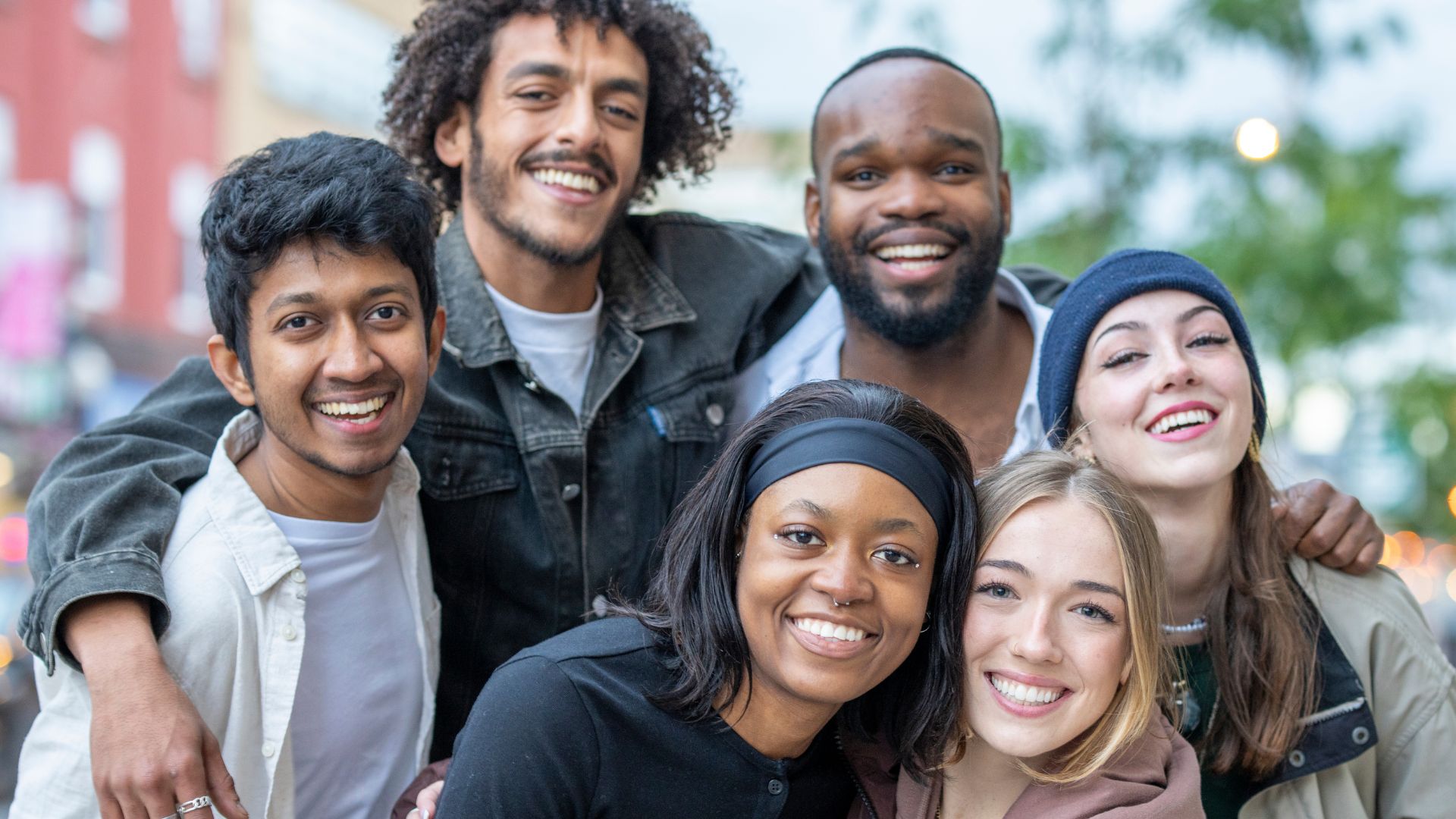
Investing in youth and future generations is essential for sustainable peace and development. Empowering young people through education, employment opportunities, and active involvement in peacebuilding can create a generation of leaders who are committed to fostering global harmony. By focusing on these areas, we can ensure that the youth of today are equipped to build a better tomorrow.
Youth Empowerment Programs
Youth empowerment programs are designed to build confidence, skills, and leadership abilities in young people. These programs provide the tools and resources necessary for youth to take charge of their lives and contribute positively to their communities.
- Leadership Training: Programs that focus on developing leadership skills help young people understand their potential and cultivate their ability to influence and inspire others. Leadership training can include public speaking, project management, and conflict resolution.
- Mentorship Opportunities: Connecting young people with mentors who can provide guidance, support, and encouragement is vital for their personal and professional growth. Mentorship programs can help youth navigate challenges and seize opportunities.
- Community Service: Encouraging youth to participate in community service projects fosters a sense of responsibility and empathy. By engaging in volunteer activities, young people can contribute to their communities and learn the value of giving back.
- Youth Councils and Networks: Establishing youth councils and networks gives young people a platform to voice their opinions, share ideas, and collaborate on initiatives. These forums can empower youth to take an active role in decision-making processes.
Education and Employment Opportunities
Access to quality education and employment opportunities is fundamental to youth empowerment. Ensuring that young people have the knowledge and skills needed to succeed in the workforce is crucial for their economic independence and overall well-being.
- Inclusive Education: Providing inclusive and equitable education ensures that all young people, regardless of their background, have access to learning opportunities. This includes addressing barriers to education, such as poverty, discrimination, and disability.
- Vocational Training: Vocational training programs equip youth with practical skills that are in demand in the job market. These programs can provide pathways to employment in fields such as technology, healthcare, and skilled trades.
- Internships and Apprenticeships: Offering internships and apprenticeships allows young people to gain hands-on experience and develop professional networks. These opportunities can bridge the gap between education and employment.
- Entrepreneurship Support: Encouraging entrepreneurship among youth by providing access to funding, training, and mentorship can help them start their own businesses and create jobs for others. Entrepreneurship programs can foster innovation and economic growth.
Engaging Young People in Peacebuilding
Young people have a unique perspective and energy that can be harnessed for peacebuilding efforts. Engaging youth in peacebuilding activities not only empowers them but also strengthens communities and promotes long-term stability.
- Peace Education: Incorporating peace education into school curricula helps young people understand the principles of non-violence, conflict resolution, and human rights. Peace education can foster a culture of peace from an early age.
- Youth-Led Initiatives: Supporting youth-led peacebuilding initiatives empowers young people to take ownership of their efforts to promote peace. This can include organizing dialogues, workshops, and community projects that address local issues.
- Conflict Resolution Training: Providing training in conflict resolution and mediation equips young people with the skills to address disputes constructively. This training can be particularly valuable in communities affected by violence and conflict.
- International Youth Exchanges: Facilitating international youth exchanges allows young people to learn from different cultures and perspectives. These exchanges can build mutual understanding and foster global solidarity.
Investing in youth and future generations is crucial for building a peaceful and prosperous world. By implementing youth empowerment programs, ensuring access to education and employment opportunities, and engaging young people in peacebuilding, we can create a generation of leaders committed to fostering global harmony. Each step we take to invest in youth brings us closer to a future where peace and development are sustained by empowered and engaged young people. Let us commit to these efforts and work together to build a better world for future generations.
Step 15: Promote Fair and Just Legal Systems

A fair and just legal system is foundational to peace, stability, and the protection of human rights. Promoting such systems involves ensuring access to justice for all, implementing legal reforms to protect human rights, and supporting international criminal justice mechanisms. These efforts contribute to a society where the rule of law prevails, and everyone is treated with dignity and fairness.
Access to Justice for All
Access to justice means that everyone, regardless of their background or circumstances, has the ability to seek and obtain a remedy through the legal system. It is a fundamental aspect of a fair and just legal system.
- Legal Aid Services: Providing free or affordable legal aid services ensures that individuals, especially those from marginalized communities, can access legal representation and advice. Legal aid helps bridge the gap for those who cannot afford legal fees.
- Court Accessibility: Courts should be accessible to all, with procedures that are straightforward and not overly complex or intimidating. This includes having courts in rural and underserved areas and ensuring that court procedures are conducted in a language understood by the litigants.
- Public Legal Education: Educating the public about their legal rights and how to navigate the legal system is crucial. Public legal education programs can help individuals understand their rights and the resources available to them.
- Alternative Dispute Resolution (ADR): Promoting ADR methods, such as mediation and arbitration, can provide more accessible, cost-effective, and quicker resolutions to disputes compared to traditional court proceedings.
Legal Reforms to Protect Human Rights
Legal reforms are essential to ensure that laws and legal practices uphold and protect human rights. Reforms should aim to eliminate discriminatory laws, enhance protections, and ensure that justice systems operate fairly and effectively.
- Anti-Discrimination Laws: Enacting and enforcing laws that prohibit discrimination based on race, gender, sexual orientation, religion, and other protected characteristics is fundamental. These laws should protect individuals from discrimination in all areas of life, including employment, education, and housing.
- Human Rights Protections: Legal systems should include robust protections for human rights, such as freedom of expression, assembly, and the right to a fair trial. Reforms should ensure that these rights are protected and that any violations are swiftly addressed.
- Judicial Independence: Ensuring that the judiciary is independent from political influence is crucial for the fair administration of justice. Judges should be appointed based on merit and should be free to make decisions without fear of retribution.
- Prison and Criminal Justice Reform: Reforms should address issues such as overcrowding, inhumane conditions, and the use of torture. Alternatives to incarceration, such as rehabilitation and restorative justice programs, should be promoted to ensure that the criminal justice system is fair and humane.
International Criminal Justice
International criminal justice mechanisms play a vital role in addressing the most serious crimes, such as genocide, war crimes, and crimes against humanity. These mechanisms ensure that perpetrators are held accountable and that justice is served on a global scale.
- International Criminal Court (ICC): Supporting the ICC, which prosecutes individuals for the most severe international crimes, is essential. Countries should cooperate with the ICC by ratifying the Rome Statute, providing necessary resources, and assisting in the apprehension of suspects.
- International Tribunals: International tribunals, such as those established for Rwanda and the former Yugoslavia, have demonstrated the importance of international justice in addressing atrocities. Supporting the establishment and operation of such tribunals when necessary can ensure that justice is served.
- Universal Jurisdiction: Promoting the principle of universal jurisdiction allows national courts to prosecute individuals for serious international crimes, regardless of where the crime was committed. This principle ensures that there are no safe havens for perpetrators of atrocities.
- Victims’ Rights and Reparations: Ensuring that victims of international crimes have access to justice, including reparations, is crucial. International justice mechanisms should include provisions for victim participation and compensation.
Promoting fair and just legal systems is essential for global harmony. By ensuring access to justice for all, implementing legal reforms to protect human rights, and supporting international criminal justice, we can create a world where the rule of law prevails and everyone is treated with dignity and fairness. Each step we take toward justice brings us closer to a future where peace and human rights are upheld universally. Let us commit to these principles and work together to build a more just and equitable world.
Step 16: Encourage Global Solidarity and Cooperation
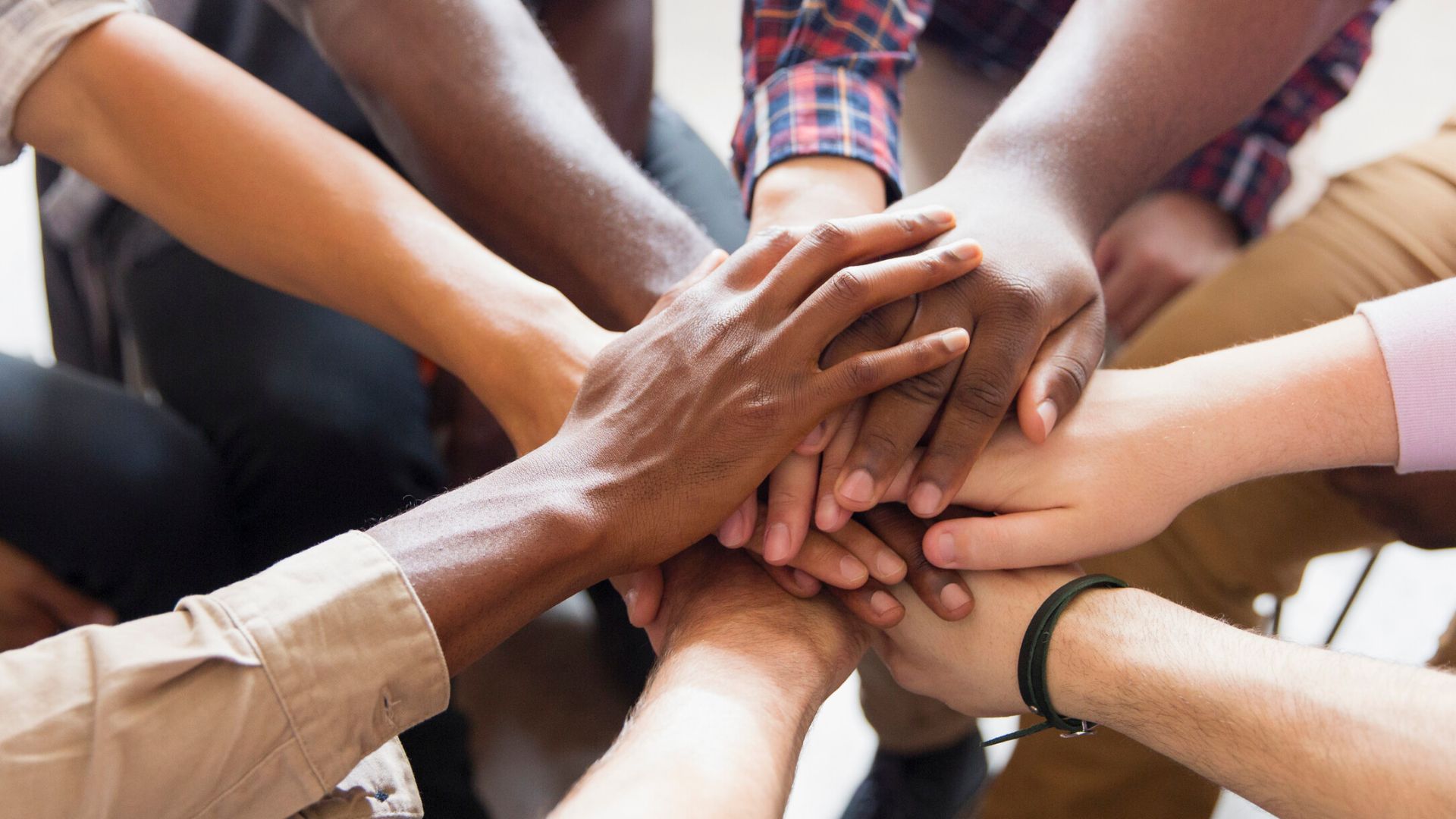
Global solidarity and cooperation are essential for achieving lasting peace and addressing the complex challenges facing our world today. By building alliances for peace, supporting the role of international NGOs, and fostering grassroots movements and community involvement, we can create a more united and harmonious global community.
Building Alliances for Peace
Building alliances for peace involves fostering partnerships between nations, organizations, and individuals to address common challenges and promote shared goals. These alliances enhance our collective ability to prevent conflicts, respond to crises, and build a more peaceful world.
- Diplomatic Relations: Strengthening diplomatic ties between countries is crucial for maintaining peace and stability. Diplomatic efforts can facilitate dialogue, resolve disputes, and promote cooperation on global issues such as climate change, human rights, and economic development.
- Regional Organizations: Regional organizations, such as the European Union (EU), African Union (AU), and Association of Southeast Asian Nations (ASEAN), play a vital role in promoting peace and cooperation within their regions. These organizations can facilitate dialogue, mediate conflicts, and implement joint initiatives to address regional challenges.
- International Agreements: Supporting and adhering to international agreements and treaties, such as the Paris Agreement on climate change and the Nuclear Non-Proliferation Treaty (NPT), is essential for fostering global cooperation and addressing shared challenges.
- Cultural Exchanges: Promoting cultural exchanges and people-to-people connections can build mutual understanding and respect between different cultures. Programs such as student exchanges, cultural festivals, and international conferences can help break down barriers and foster global solidarity.
Role of International NGOs
International non-governmental organizations (NGOs) play a crucial role in promoting peace, development, and human rights. These organizations often operate in challenging environments, providing essential services and advocating for marginalized communities.
- Humanitarian Aid: International NGOs provide critical humanitarian aid in conflict zones, disaster areas, and regions affected by poverty. Their efforts include delivering food, clean water, medical care, and shelter to those in need.
- Advocacy and Awareness: NGOs raise awareness about global issues, advocate for policy changes, and hold governments and corporations accountable for their actions. By amplifying the voices of marginalized communities, NGOs can drive social and political change.
- Capacity Building: NGOs often engage in capacity-building initiatives, helping communities develop the skills and resources needed to address their challenges. This can include training programs, educational initiatives, and support for local businesses and organizations.
- Partnerships: NGOs frequently collaborate with governments, international organizations, and other NGOs to maximize their impact. These partnerships can enhance the effectiveness of development and peacebuilding efforts by pooling resources and expertise.
Grassroots Movements and Community Involvement
Grassroots movements and community involvement are essential for creating sustainable change and fostering a sense of ownership and responsibility among individuals. Local communities are often best positioned to understand their unique challenges and develop effective solutions.
- Community-Led Initiatives: Encouraging and supporting community-led initiatives empowers individuals to take charge of their development. Examples include community gardens, local peace committees, and neighborhood improvement projects.
- Participatory Governance: Involving community members in decision-making processes ensures that their voices are heard and their needs are addressed. Participatory governance can take the form of town hall meetings, local councils, and citizen advisory boards.
- Social Movements: Grassroots social movements have the power to drive significant social and political change. Movements advocating for environmental justice, human rights, and social equality have achieved remarkable successes by mobilizing people at the local level and advocating for systemic change.
- Volunteerism: Promoting volunteerism and community service fosters a sense of solidarity and collective responsibility. Volunteers can contribute to a wide range of initiatives, from disaster relief efforts to educational programs and environmental conservation projects.
Encouraging global solidarity and cooperation is vital for achieving global harmony. By building alliances for peace, supporting the role of international NGOs, and fostering grassroots movements and community involvement, we can create a more united and harmonious world. Each effort to promote solidarity and cooperation brings us closer to a future where individuals, communities, and nations work together for the common good. Let us commit to these principles and work together to build a world where peace and cooperation are the norm.
Step 17: Foster Economic Interdependence

Economic interdependence plays a crucial role in fostering global harmony. By promoting global trade and economic partnerships, reducing economic disparities between nations, and encouraging ethical business practices, we can build a more interconnected and cooperative world. These efforts not only enhance economic stability but also contribute to peace and mutual understanding.
Global Trade and Economic Partnerships
Global trade and economic partnerships are foundational to economic interdependence. When countries engage in trade and collaborate economically, they create mutual benefits and interdependencies that can reduce the likelihood of conflict.
- Free Trade Agreements: Establishing free trade agreements (FTAs) between countries can facilitate the flow of goods and services, reduce tariffs, and create new economic opportunities. FTAs encourage countries to collaborate economically, fostering stronger ties and mutual dependence.
- Multilateral Trade Organizations: Organizations like the World Trade Organization (WTO) play a critical role in promoting fair and open trade. By adhering to international trade rules and resolving disputes through the WTO, countries can maintain stable and predictable trading relationships.
- Economic Cooperation Frameworks: Regional economic cooperation frameworks, such as the North American Free Trade Agreement (NAFTA) and the European Union (EU), help to deepen economic ties and promote integration among member states. These frameworks facilitate investment, innovation, and economic growth.
- Public-Private Partnerships: Encouraging collaboration between governments and the private sector can drive economic development and innovation. Public-private partnerships can address infrastructure needs, promote sustainable development, and create jobs.
Reducing Economic Disparities Between Nations
Reducing economic disparities between nations is essential for fostering global harmony. Economic inequality can lead to instability, migration, and conflict. Addressing these disparities promotes fairness and stability.
- Foreign Aid and Development Assistance: Providing foreign aid and development assistance to low-income countries can help them build infrastructure, improve education and healthcare, and reduce poverty. This assistance should be targeted, transparent, and focused on sustainable development.
- Debt Relief: Offering debt relief to heavily indebted poor countries can free up resources for social and economic development. Reducing debt burdens allows countries to invest in critical areas such as education, healthcare, and infrastructure.
- Fair Trade Practices: Supporting fair trade practices ensures that producers in developing countries receive fair prices for their goods and have access to international markets. Fair trade promotes sustainable livelihoods and reduces economic disparities.
- Capacity Building: Investing in capacity-building initiatives helps developing countries enhance their economic potential. This includes providing technical assistance, training, and support for entrepreneurship and innovation.
Ethical Business Practices
Ethical business practices are vital for promoting economic interdependence and ensuring that economic activities contribute to social and environmental well-being. Businesses that operate ethically help to build trust, promote sustainability, and foster inclusive growth.
- Corporate Social Responsibility (CSR): Companies should adopt CSR policies that prioritize ethical behavior, environmental sustainability, and social impact. CSR initiatives can include community development projects, environmental conservation efforts, and fair labor practices.
- Sustainable Supply Chains: Businesses should ensure that their supply chains are sustainable and ethical. This involves sourcing materials responsibly, minimizing environmental impact, and ensuring fair labor practices throughout the supply chain.
- Transparent Practices: Transparency in business operations builds trust and accountability. Companies should provide clear information about their activities, financial performance, and social and environmental impact.
- Inclusive Business Models: Promoting inclusive business models that benefit marginalized communities can drive economic growth and reduce inequality. This includes providing employment opportunities, supporting small and medium-sized enterprises (SMEs), and investing in community development.
Fostering economic interdependence is essential for achieving global harmony. By promoting global trade and economic partnerships, reducing economic disparities between nations, and encouraging ethical business practices, we can create a more interconnected and cooperative world. Each step toward economic interdependence brings us closer to a future where economic stability and mutual understanding prevail. Let us commit to these principles and work together to build a world where economic interdependence fosters peace and prosperity for all.
Step 18: Strengthen Cybersecurity and Digital Peace

In our increasingly interconnected world, cybersecurity and digital peace are crucial for global stability. Addressing cyber threats and cybercrime, promoting digital literacy, and ensuring digital rights and privacy are essential steps to create a secure and peaceful digital environment. These efforts protect individuals, organizations, and nations from cyber-related risks and foster a more trustworthy and resilient digital landscape.
Addressing Cyber Threats and Cybercrime
Cyber threats and cybercrime pose significant risks to national security, economic stability, and individual privacy. Addressing these issues requires coordinated efforts at the local, national, and international levels.
- Robust Cybersecurity Measures: Implementing strong cybersecurity measures is vital for protecting critical infrastructure, government systems, and private sector networks. This includes employing advanced technologies such as encryption, intrusion detection systems, and secure communication protocols.
- International Cooperation: Cyber threats often transcend national borders, making international cooperation essential. Countries must collaborate to share intelligence, harmonize legal frameworks, and conduct joint cyber operations. Initiatives like the Budapest Convention on Cybercrime facilitate such cooperation.
- Law Enforcement Training: Providing training and resources to law enforcement agencies enables them to effectively investigate and combat cybercrime. This includes specialized training in digital forensics, cyber threat analysis, and the legal aspects of cybercrime.
- Public-Private Partnerships: Collaborating with the private sector is crucial for enhancing cybersecurity. Governments and businesses should work together to share information about cyber threats, develop best practices, and create resilient cyber defenses.
Promoting Digital Literacy
Digital literacy empowers individuals to navigate the digital world safely and responsibly. Promoting digital literacy ensures that people can protect themselves from cyber threats and make informed decisions online.
- Educational Programs: Integrating digital literacy into educational curricula helps students develop essential skills from a young age. These programs should cover topics such as safe online behavior, recognizing phishing attempts, and protecting personal information.
- Community Workshops: Offering community workshops and training sessions can reach a broader audience, including adults and seniors. These workshops can provide practical advice on using digital tools safely and securely.
- Public Awareness Campaigns: Launching public awareness campaigns can educate the general public about cyber threats and safe online practices. These campaigns can use various media platforms to disseminate information and raise awareness.
- Resources and Tools: Providing access to resources and tools, such as online tutorials, guides, and cybersecurity software, empowers individuals to enhance their digital literacy and protect themselves from cyber threats.
Ensuring Digital Rights and Privacy
Protecting digital rights and privacy is fundamental to maintaining trust in the digital world. Ensuring that individuals’ rights are respected and their personal information is secure is essential for fostering digital peace.
- Data Protection Laws: Enacting and enforcing robust data protection laws safeguards individuals’ privacy and ensures that organizations handle personal data responsibly. Laws such as the General Data Protection Regulation (GDPR) set high standards for data protection.
- Privacy by Design: Encouraging organizations to adopt privacy by design principles ensures that privacy considerations are integrated into the development of digital products and services from the outset.
- User Control: Providing users with control over their personal information, including the ability to access, correct, and delete their data, is crucial for protecting privacy. Transparent privacy policies and user-friendly tools can facilitate this control.
- Advocacy and Accountability: Supporting organizations and initiatives that advocate for digital rights and hold companies accountable for privacy violations is essential. Advocacy groups can push for stronger regulations and ensure that individuals’ rights are protected.
Strengthening cybersecurity and digital peace is vital for achieving global harmony. By addressing cyber threats and cybercrime, promoting digital literacy, and ensuring digital rights and privacy, we can create a secure and trustworthy digital environment. Each effort to enhance cybersecurity and protect digital rights brings us closer to a future where individuals and organizations can thrive in a safe and peaceful digital world. Let us commit to these principles and work together to build a more resilient and secure digital landscape.
Step 19: Support Arts and Cultural Diplomacy

The arts and cultural diplomacy play a vital role in fostering global harmony. By leveraging the power of creativity and cultural exchange, we can build bridges between communities, promote understanding, and inspire collective action for peace. Supporting the role of the arts in peacebuilding, encouraging cultural exchanges and collaborations, and promoting global heritage and arts education are essential steps toward achieving these goals.
Role of Arts in Peacebuilding
The arts have a unique ability to transcend language and cultural barriers, making them a powerful tool for peacebuilding. Through various forms of artistic expression, individuals and communities can explore shared experiences, express their identities, and address conflicts constructively.
- Storytelling and Healing: The arts provide a platform for individuals to share their stories and experiences, fostering empathy and understanding. Artistic practices such as theater, music, and visual arts can facilitate healing and reconciliation in post-conflict settings by allowing individuals to process trauma and rebuild trust.
- Community Engagement: Public art projects, community murals, and participatory performances can engage communities in dialogue and collective action. These initiatives promote social cohesion by bringing diverse groups together to create and celebrate art.
- Advocacy and Awareness: Artists can use their work to raise awareness about social and political issues, advocating for peace and justice. Art can challenge stereotypes, highlight injustices, and inspire action by presenting complex issues in accessible and emotionally resonant ways.
- Conflict Resolution: Artistic methods such as drama therapy, music therapy, and art therapy can be used in conflict resolution programs to facilitate communication, build empathy, and foster mutual understanding among conflicting parties.
Cultural Exchanges and Collaborations
Cultural exchanges and collaborations are essential for promoting mutual understanding and appreciation between different cultures. These interactions can break down stereotypes, build trust, and foster long-lasting relationships.
- Exchange Programs: Student and artist exchange programs provide opportunities for individuals to immerse themselves in different cultures, learn new perspectives, and share their own traditions. These experiences foster personal growth and cross-cultural understanding.
- Collaborative Projects: International collaborations between artists, cultural institutions, and communities can produce innovative and impactful works that reflect diverse perspectives. Joint exhibitions, performances, and residencies can promote creative exchange and dialogue.
- Cultural Festivals: Hosting cultural festivals that celebrate the art, music, dance, and traditions of different cultures can promote inclusivity and appreciation. These events provide a space for people to come together, share their heritage, and learn from one another.
- Virtual Exchanges: Leveraging digital platforms to facilitate virtual cultural exchanges can expand access and reach, allowing people from different parts of the world to connect and collaborate regardless of physical distance.
Promoting Global Heritage and Arts Education
Promoting global heritage and arts education is crucial for preserving cultural diversity and fostering an appreciation for the arts. Education initiatives can empower individuals to understand and celebrate their own cultural heritage as well as that of others.
- Heritage Preservation: Protecting and preserving cultural heritage sites, artifacts, and traditions is essential for maintaining cultural diversity. Efforts to document, restore, and promote heritage can ensure that future generations have access to their cultural history.
- Arts Education: Integrating arts education into school curricula helps students develop creativity, critical thinking, and cultural awareness. Arts education programs should be inclusive and accessible, providing opportunities for all students to engage with the arts.
- Global Curriculum: Developing a global arts curriculum that includes the study of diverse artistic traditions and cultural practices can broaden students’ horizons and foster a deeper understanding of global cultures.
- Public Programs: Museums, galleries, and cultural institutions can offer public programs, workshops, and lectures that promote arts education and cultural heritage. These programs can engage communities and provide lifelong learning opportunities.
Supporting arts and cultural diplomacy is vital for achieving global harmony. By leveraging the role of the arts in peacebuilding, encouraging cultural exchanges and collaborations, and promoting global heritage and arts education, we can create a more inclusive and interconnected world. Each effort to support the arts and cultural diplomacy brings us closer to a future where creativity and cultural understanding are at the heart of global peace. Let us commit to these principles and work together to build a world where the arts and culture inspire and unite us all.
Step 20: Encourage Personal Responsibility and Action

Global harmony begins with individual actions and personal commitment. Encouraging personal responsibility and action involves recognizing the power of individual contributions to global peace, fostering community involvement and volunteerism, and sharing personal stories and case studies of impact. By taking personal responsibility, we can each play a role in creating a more peaceful and just world.
Individual Actions for Global Peace
Every individual has the power to contribute to global peace through their actions, choices, and behavior. Small, everyday actions can collectively make a significant impact.
- Practice Kindness and Empathy: Simple acts of kindness and empathy towards others can foster a sense of community and understanding. Listening to others, offering support, and showing compassion can help bridge divides and build trust.
- Promote Inclusivity: Being inclusive in our daily interactions and challenging discrimination whenever we encounter it helps create a more equitable society. This includes speaking out against racism, sexism, and other forms of discrimination.
- Educate Yourself and Others: Taking the initiative to learn about global issues, human rights, and cultural diversity enhances our understanding and enables us to make informed decisions. Sharing this knowledge with others amplifies its impact.
- Sustainable Living: Adopting sustainable practices, such as reducing waste, conserving energy, and supporting ethical products, contributes to environmental sustainability and global well-being.
- Peaceful Conflict Resolution: Practicing and promoting peaceful conflict resolution in personal and professional relationships helps build a culture of non-violence. Learning and using techniques like mediation and active listening can de-escalate conflicts.
Community Involvement and Volunteerism
Community involvement and volunteerism are powerful ways to contribute to global peace and development. By actively participating in our communities, we can address local issues and build stronger, more resilient societies.
- Local Volunteering: Volunteering for local organizations and initiatives allows individuals to directly impact their communities. This can include participating in food drives, tutoring programs, environmental clean-ups, and other community services.
- Support for Community Projects: Getting involved in community projects that promote social cohesion, such as neighborhood improvement projects, cultural festivals, and local advocacy campaigns, strengthens community bonds.
- Engaging in Civic Activities: Participating in civic activities, such as attending town hall meetings, joining local councils, and voting in elections, empowers individuals to influence local governance and decision-making processes.
- Creating Community Networks: Forming or joining community networks that focus on peacebuilding, social justice, or environmental sustainability can amplify individual efforts and foster collective action.
Personal Stories and Case Studies of Impact
Sharing personal stories and case studies of individuals making a difference can inspire others to take action and demonstrate the tangible impact of personal responsibility.
- Inspirational Stories: Highlighting stories of individuals who have made significant contributions to peace and development can serve as powerful examples. These stories can be shared through social media, blogs, podcasts, and community events.
- Case Studies: Documenting and sharing case studies of successful community projects and initiatives provides valuable insights and practical strategies for others to replicate. Case studies can showcase the process, challenges, and outcomes of various efforts.
- Peer Support Groups: Creating peer support groups where individuals can share their experiences, challenges, and successes fosters a sense of community and encourages sustained action. These groups can offer mutual support and motivation.
- Recognition and Awards: Recognizing and celebrating the efforts of individuals and groups who have made a positive impact through awards and public acknowledgment can encourage more people to take action.
Encouraging personal responsibility and action is essential for achieving global harmony. By taking individual actions for global peace, engaging in community involvement and volunteerism, and sharing personal stories and case studies of impact, we can each contribute to a more peaceful and just world. Every effort, no matter how small, adds up to create significant change. Let us commit to these principles and take personal responsibility for building a future where peace and harmony are possible for everyone.
Conclusion
As we reflect on the journey towards global harmony, it’s clear that achieving peace and stability requires a multifaceted approach, involving the collective efforts of individuals, communities, and nations. The 20 steps we’ve explored outline a comprehensive path to fostering a world where everyone can live in dignity and peace.
Recap of the 20 Steps
- Promote Global Education: Ensuring universal access to quality education to foster understanding and empathy.
- Strengthen International Institutions: Enhancing cooperation and reforming institutions to be more inclusive and efficient.
- Foster Economic Equality: Addressing poverty and inequality, promoting fair trade, and supporting sustainable development.
- Advocate for Human Rights: Upholding the principles of the Universal Declaration of Human Rights and supporting marginalized communities.
- Support Conflict Resolution and Mediation: Promoting diplomatic solutions, peacekeeping missions, and successful conflict resolution strategies.
- Promote Environmental Sustainability: Connecting peace with environmental health, combating climate change, and managing resources sustainably.
- Encourage Political Stability and Good Governance: Promoting democracy, anti-corruption measures, and civic participation.
- Enhance Global Health Initiatives: Ensuring universal healthcare access, combating pandemics, and raising mental health awareness.
- Advocate for Disarmament and Non-Proliferation: Supporting nuclear disarmament, reducing the arms trade, and promoting disarmament treaties.
- Support Refugees and Displaced Persons: Providing humanitarian aid and finding long-term solutions for integration and resettlement.
- Promote Gender Equality: Empowering women and girls, addressing gender-based violence, and ensuring equal opportunities.
- Foster Cultural and Religious Tolerance: Engaging in interfaith dialogue, celebrating cultural diversity, and combating hate speech.
- Strengthen Global Communication Networks: Promoting responsible journalism, combating misinformation, and leveraging media for peace.
- Invest in Youth and Future Generations: Empowering youth through education, employment opportunities, and peacebuilding initiatives.
- Promote Fair and Just Legal Systems: Ensuring access to justice, protecting human rights, and supporting international criminal justice.
- Encourage Global Solidarity and Cooperation: Building alliances for peace, supporting international NGOs, and fostering grassroots movements.
- Foster Economic Interdependence: Promoting global trade, reducing economic disparities, and encouraging ethical business practices.
- Strengthen Cybersecurity and Digital Peace: Addressing cyber threats, promoting digital literacy, and protecting digital rights.
- Support Arts and Cultural Diplomacy: Leveraging the arts for peacebuilding, encouraging cultural exchanges, and promoting arts education.
- Encourage Personal Responsibility and Action: Highlighting the power of individual actions, community involvement, and personal impact stories.
Call to Action
Each of us has a role to play in creating a peaceful and harmonious world. The steps outlined here provide a roadmap, but real change starts with individual commitment and action. We urge you to take these principles to heart and apply them in your daily life. Engage in your community, advocate for justice and equality, support sustainable practices, and foster understanding and tolerance. Every action, no matter how small, contributes to a larger movement towards global harmony.
Vision for a Peaceful and Harmonious Future
Imagine a world where conflicts are resolved peacefully, where every individual has access to education and healthcare, and where diverse cultures are celebrated and respected. A world where economic opportunities are available to all, where the environment is protected, and where human rights are upheld universally. This is the vision of a peaceful and harmonious future that we strive for.
Achieving this vision requires dedication, collaboration, and unwavering commitment to the principles of peace, justice, and equality. By working together, we can build a world where every person can live in dignity, security, and peace. Let us embark on this journey with hope and determination, knowing that each step we take brings us closer to the world we envision. Together, we can create a future where harmony prevails and where the ideals of peace become a reality for all.










It might be contained in step 4 (human rights) but it seems to be especially important if you follow the studies of peace researcher Franz Jedlicka: the legal protection of children from violence (from corporal punishment). This seems to be a very fundamental psychological factor for peaceful societies.
Norman